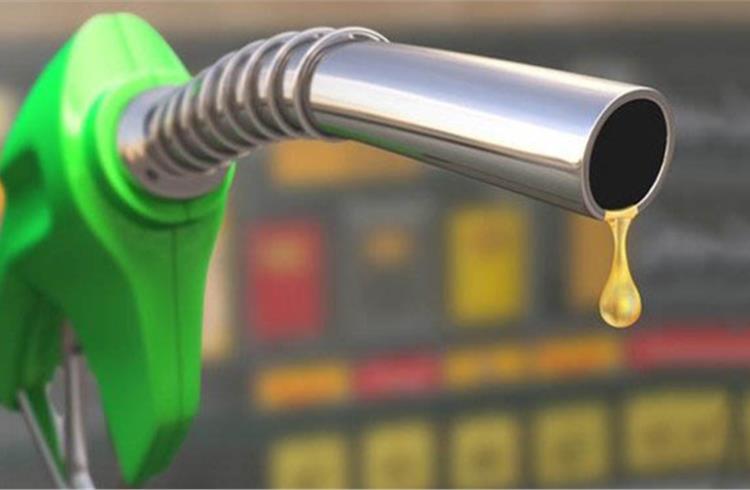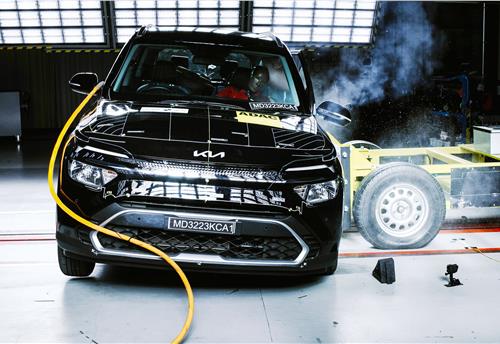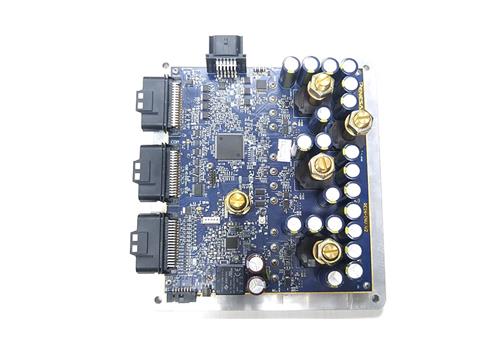BS VI fuel goes on sale in Delhi
Delhi will become the first city in India to see retail sales of BS VI petrol and diesel. While, Noida, Ghaziabad, Gurugram and Faridabad along with other 13 major cities including Mumbai, Chennai, Bengaluru, Hyderabad and Pune will switch over to the cleaner BS VI fuel from January 1, 2019. The rest of the country will follow suit from April 2020.
The ultra-clean BS VI grade petrol and diesel has started selling at no additional price in the national capital in a bid to combat alarming levels of air pollution.
Delhi will become the first city in India to see retail sales of BS VI petrol and diesel. While, Noida, Ghaziabad, Gurugram and Faridabad along with other 13 major cities including Mumbai, Chennai, Bengaluru, Hyderabad and Pune will switch over to the cleaner BS VI fuel from January 1, 2019. The rest of the country will follow suit from April 2020.
State-owned oil firms will begin supplying the BS VI petrol and diesel (equivalent to fuel meeting Euro-VI emission norm) at all their 391 petrol pumps in the national capital territory (NCT) from tomorrow, said Indian Oil Corp (IOC) Director (Refineries) B V Rama Gopal.
While the oil companies have invested heavily to produce cleaner fuel, the consumers are not being passed on any of the cost for the time being, he said. "Rest assured we don't have plans of passing on the cost to consumers. There are no plans to recover (the cost) from customers immediately," he told reporters.
Costing wise, the cleaner fuel should cost around 50 paisa a litre more. He said a mechanism of recovering the cost when the whole country shifts to Euro-VI grade fuel would be worked out.
To meet Delhi's annual consumption of 9.6 lakh tonnes of petrol and 12.65 lakh tonnes of diesel, the Mathura refinery in Uttar Pradesh, Panipat refinery in Haryana, Bina in Madhya Pradesh and Bhatinda in Punjab have started producing the cleaner BS VI fuel, and about Rs 183 crore has been spent on the Panipat refinery alone for producing the cleaner fuel.
Other refineries are in the process of being upgraded, Gopal said. India in 2015 decided to leapfrog to Euro-VI emission norm compliant petrol and diesel from April 2020, from the Euro-IV grade at present.
While the deadline for the rest of the country stands, the same for Delhi, which is choking on thick toxic smog, was brought forward. The Euro-VI grade fuel contains 10 parts per million (ppm) of sulphur as against 50 ppm in Euro-IV fuels.
Gopal said the cleaner BS VI fuel and lesser grade cars and two-wheelers, which are presently available in the country, would result in 10-20 percent reduction in particulate emission but for full benefits, the vehicles too need to have BS VI engines.
"BS VI petrol and diesel supplies from tomorrow give comfort to automobiles manufacturers that supplies of cleaner fuel would not be a problem," the official said.
IOC, the nation's biggest oil firm controlling roughly half of retail fuel market, will source the BS VI fuel to meet Delhi's requirement from its Mathura and Panipat refineries, while Hindustan Petroleum Corp (HPCL) will do so from its joint venture refinery at Bhatinda. Bharat Petroleum Corp (BPCL) will supply the fuel from its Bina refinery.
According to IOC, for petrol engines, one of the most critical specifications is Research Octane No. (RON), which has improved from 88 in BS II to 91. It is at par with regular 91 octane gasoline (petrol) required for Euro VI emission norms. Sulphur specification for petrol and diesel will be reduced 50 times from a level of 500 ppm for BS II fuel to 10 ppm in BS VI.
Previously, the fuels meeting Euro IV or Bharat Stage (BS) IV specifications were to be supplied throughout the country by April 2017 and BS V or Euro V grade fuel by April 1, 2020. But now the government plans to switch over directly from BS IV to BS VI auto fuels.
Oil refineries had previously upgraded technology and invested over Rs 55,000 crore for production and supply of BS III/IV fuels, and the Oil refineries will need to invest Rs 28,000 crore in upgrading petrol and diesel quality to meet cleaner fuel specifications by 2020.
RELATED ARTICLES
Kia Carens gets 3-star Global NCAP rating in fresh tests
The Carens MPV, which was tested twice under the new protocol, scored zero stars for adult occupancy in the first test.
Tata Elxsi-Renesas MCU for EVs enables cost optimisation, speedier time to market
Modular, scalable design of Motor Control Unit enables integration across diverse EV applications. Claimed to be reduce ...
Bosch hydrogen engine tech-powered truck to be on Indian roads this year
The global supplier of technology and services is betting big on both electromobility and hydrogen. While announcing the...





 By Autocar Pro News Desk
By Autocar Pro News Desk
 02 Apr 2018
02 Apr 2018
 5061 Views
5061 Views









